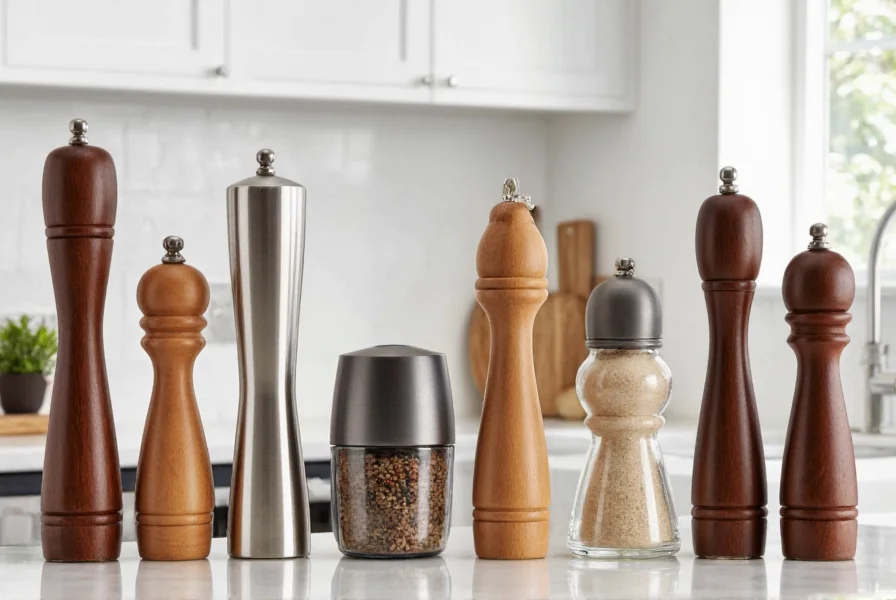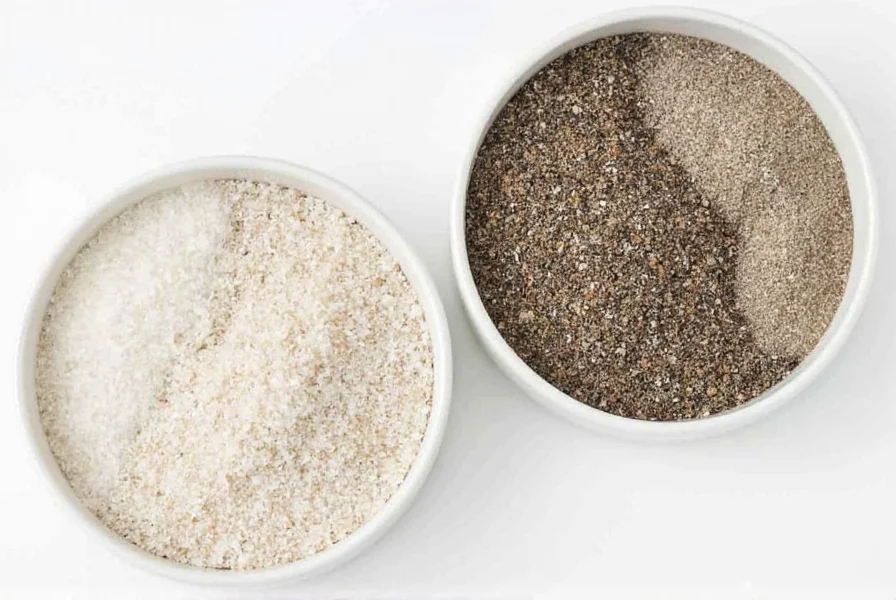Cole & Mason salt and pepper products represent some of the most recognized kitchen essentials worldwide. With over a century of manufacturing experience, the company has developed a reputation for producing durable, functional seasoning tools that combine traditional craftsmanship with modern engineering. Their mills incorporate adjustable grind settings, corrosion-resistant mechanisms, and ergonomic designs that have made them staples in professional and home kitchens alike.
History and Brand Evolution
Founded in London in 1914, Cole & Mason began as a small trading company importing spices and seasonings. The brand shifted focus to manufacturing its own mills in the 1960s, introducing the revolutionary Peppermill that featured a patented adjustable grind mechanism. This innovation established their reputation for precision engineering in kitchen tools. Over decades, they've expanded their product line while maintaining commitment to quality materials and functional design.
Material Composition and Sustainability
Cole & Mason offers salt and pepper mills in three primary material categories, each with distinct characteristics:
| Material Type | Key Characteristics | Lifespan Expectancy | Maintenance Requirements |
|---|---|---|---|
| Sustainably Sourced Wood | Natural aesthetic, moisture-resistant finish | 10-15 years with proper care | Hand wash only, occasional oiling |
| Acrylic | Translucent, shatter-resistant, modern appearance | 8-12 years | Dishwasher safe (top rack) |
| Stainless Steel | Durable, corrosion-resistant, professional look | 15+ years | Wipe clean, avoid abrasive cleaners |
The company maintains strict sustainability practices, particularly with their wood products, which carry FSC (Forest Stewardship Council) certification. Their acrylic mills use BPA-free materials, while stainless steel models incorporate food-grade 304 stainless steel components.

Grinding Mechanism Technology
The heart of any quality salt and pepper mill is its grinding mechanism. Cole & Mason distinguishes itself through specialized mechanisms tailored to each seasoning type:
- Pepper mills feature carbon steel mechanisms designed to crack peppercorns without crushing them, preserving essential oils and flavor compounds
- Salt mills utilize ceramic mechanisms resistant to corrosion from salt's chemical properties
- Adjustable grind settings typically range from fine powder to coarse cracks, controlled by a simple twist mechanism
Understanding cole and mason salt and pepper grinder mechanisms helps users maximize product performance. The precision engineering ensures consistent particle size, which significantly impacts flavor release and culinary results. Professional chefs often prefer their mills for this precise control over seasoning texture.
Proper Maintenance and Troubleshooting
Even high-quality mills require proper care. Common issues with cole and mason salt and pepper products and their solutions include:
- Mill won't grind: Check for moisture in peppercorns (pepper mills) or excessive humidity (salt mills). Dry ingredients thoroughly before refilling.
- Inconsistent grind: Adjust the grind setting knob. For persistent issues, disassemble and clean the mechanism according to manufacturer instructions.
- Rust formation: Exclusive to salt mills indicates mechanism failure. Ceramic mechanisms shouldn't corrode—contact customer support if this occurs.
When learning how to refill cole and mason salt mill units, always use dry ingredients and avoid overfilling. For optimal performance in humid environments, consider models with built-in anti-humidity technology, which Cole & Mason incorporates in their premium lines.
Performance Comparison
Independent testing reveals how Cole & Mason mills compare to market alternatives:
| Feature | Cole & Mason | Mid-Range Brands | Budget Brands |
|---|---|---|---|
| Grind Consistency | Excellent (92% uniformity) | Good (78% uniformity) | Poor (52% uniformity) |
| Mechanism Longevity | 10,000+ turns | 5,000-7,000 turns | 1,500-3,000 turns |
| Adjustment Precision | 12 distinct settings | 5-7 settings | 2-3 settings |
| Material Quality | Food-grade certified | Mixed certification | Rarely certified |
Practical Considerations for Users
When selecting cole and mason salt and pepper products, consider these factors:
- Kitchen environment: Humid climates require mills with anti-corrosion features
- Usage frequency: Daily users benefit from stainless steel models with extended warranties
- Storage space: Consider compact designs for small kitchens
- Ergonomics: Larger hands may prefer mills with wider diameter for better grip
Understanding cole and mason acrylic vs wood mills helps determine the best choice for individual needs. Wood offers traditional aesthetics but requires more maintenance, while acrylic provides modern visibility of seasoning levels with easier care. The best cole and mason pepper grinder models balance your specific kitchen requirements with the brand's quality standards.
Long-Term Value Assessment
While Cole & Mason products typically cost more than budget alternatives, their longevity often provides better value over time. A premium mill lasting 10-15 years represents a daily cost of pennies compared to replacing cheaper models every 1-2 years. The consistent performance and precise seasoning control also contribute to better culinary results, making them worthwhile investments for serious home cooks.
Frequently Asked Questions
How do I properly maintain my Cole & Mason salt mill?
For optimal performance of your Cole & Mason salt mill, keep it away from moisture sources, use only dry salt, and occasionally run uncooked rice through the mechanism to absorb any humidity. Never immerse the mill in water, and store it in a dry location. Ceramic mechanisms require minimal maintenance but should be cleaned if salt becomes clumped.
What's the difference between Cole & Mason pepper and salt mills?
Cole & Mason designs different mechanisms for salt and pepper mills. Pepper mills use carbon steel mechanisms that effectively crack peppercorns while preserving essential oils. Salt mills feature corrosion-resistant ceramic mechanisms because salt's chemical properties would damage metal components. Using the correct mill type for each seasoning preserves both the mill's longevity and optimal flavor release.
Why has my Cole & Mason mill stopped grinding properly?
Most grinding issues occur due to moisture exposure or using inappropriate ingredients. For pepper mills, ensure peppercorns are completely dry. For salt mills, humidity can cause salt to clump. Disassemble the mill according to instructions, clean the mechanism thoroughly, and allow all parts to dry completely before reassembling. If problems persist, the mechanism may need replacement, which Cole & Mason offers for most models.
How often should I replace the mechanism in my Cole & Mason mill?
With proper care, Cole & Mason mechanisms typically last 5-10 years of regular use. Signs it's time for replacement include inconsistent grinding, difficulty turning the mechanism, or visible wear on grinding components. The company offers replacement mechanisms for most current and discontinued models, extending the mill's overall lifespan significantly.
Can I put my Cole & Mason mill in the dishwasher?
Only acrylic models are dishwasher safe (top rack only). Wood mills require hand washing with a damp cloth, and stainless steel mills should be wiped clean with a damp cloth. Never submerge any mill's mechanism in water, as this will damage the internal components. Always disassemble mills before cleaning and ensure all parts are completely dry before reassembly.











 浙公网安备
33010002000092号
浙公网安备
33010002000092号 浙B2-20120091-4
浙B2-20120091-4